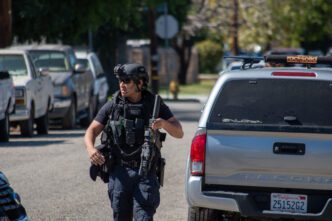Broward County schools are grappling with the repercussions of a protracted construction initiative that began with an $800 million bond referendum passed in 2014. The program, originally set for completion in 2021, remains unfinished, revealing immense challenges in project execution and management.
Broward schools recently celebrated the opening of a renovated media center at Riverside Elementary in Coral Springs, a project long delayed and over budget. The renovation, initially projected to cost $1 million and be completed in 2020, ended up costing $2 million. Despite the excitement surrounding the new facilities, the delay has underscored broader issues within the decade-long bond program.
The bond, meant to address severe infrastructural needs, has been marred by mismanagement and inefficiency, as highlighted in audits and a grand jury report. While some improvements have materialized in the form of libraries and new facilities, fundamental upgrades like air conditioning, roofing, and plumbing have often been left incomplete, frustrating students and parents.
Superintendent Howard Hepburn and other officials are working to bring the district back on track, targeting an official conclusion of the SMART program by October 2025. However, a significant portion of the necessary work will spill beyond that deadline, transitioning to the district’s regular capital budget.
Allen Zeman, a member of the School Board, candidly admitted to the program’s failures, noting, “We overpromised and underdelivered, we poorly planned how to do the work and we poorly executed the poorly planned work.” This sentiment echoes a grand jury report that cited mismanagement and deception in handling the funds, leading to charges against former Superintendent Robert Runcie and the removal of several board members by Governor Ron DeSantis.
An analysis by the Sun Sentinel revealed that progress on construction projects has been inconsistent, with the district closing out an average of only 3.5 schools per month over the past two years. Despite efforts to accelerate the pace, completing the remaining 147 projects by the planned deadline remains unlikely.
Some current board members, like Nora Rupert, have expressed deep concern over the pace and management of these projects. Rupert, who has been on the board since the bond’s inception, described the transfer of unfinished projects to the regular budget as “a shell game.” Her frustration reflects a growing impatience among the community and oversight bodies as the district struggles to fulfill its promises.
Efforts to restore public trust in the district include improved efficiency in project approval and execution, but many feel these measures are not enough. Stephen Hillberg, an engineer with the Bond Oversight Committee, emphasized the need for the district to significantly increase its completion rate to meet expectations.
The district faces ongoing infrastructure needs, with over $5 billion more in capital improvements anticipated. School Board members are considering another bond to meet these demands but acknowledge the need to rectify past missteps before regaining voter trust. Meanwhile, the focus remains on concluding current projects with a commitment to transparency and accountability.
Broward County schools are determined to move past a decade fraught with construction delays and inefficiencies. As they close the chapter on the SMART bond program, the district faces the challenge of regaining community trust and meeting future infrastructural needs.
Source: Sun-sentinel







